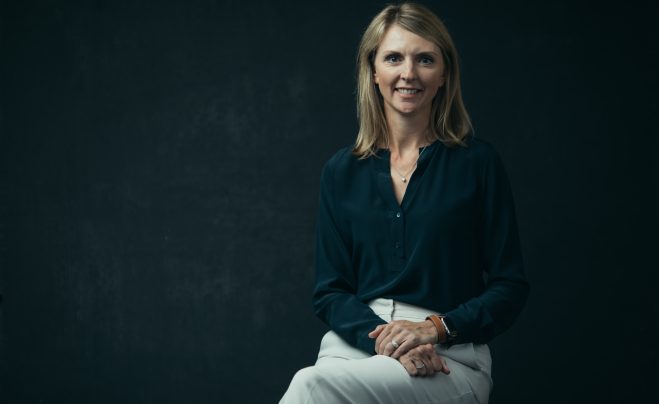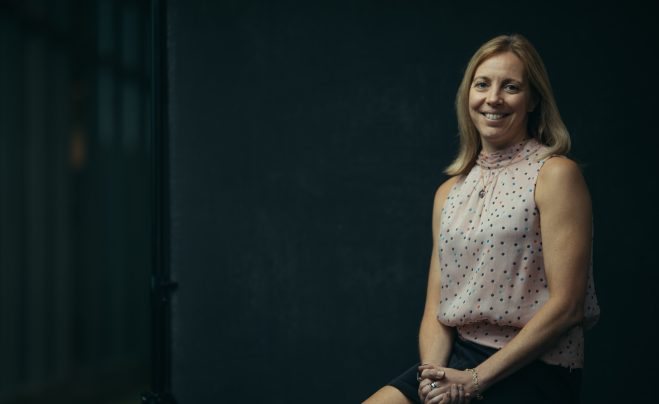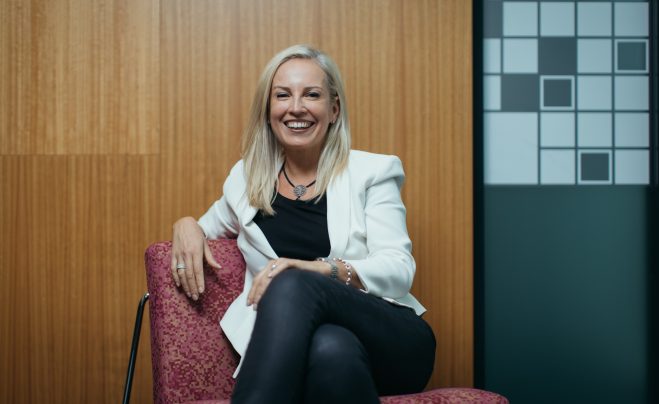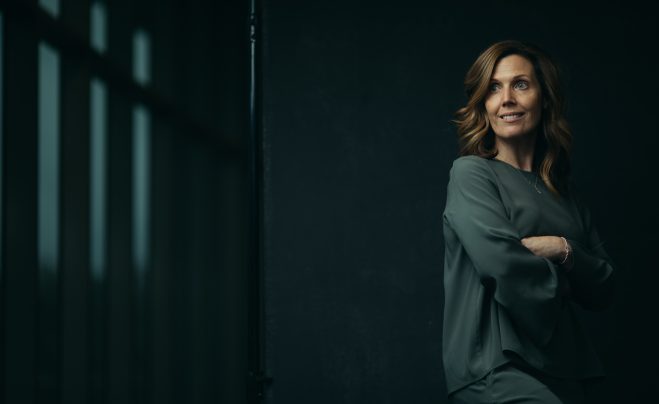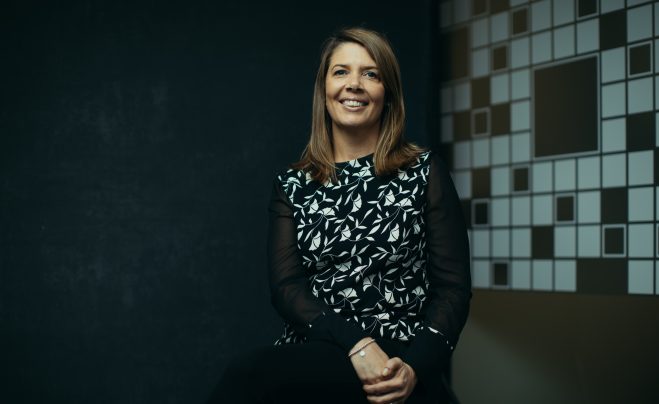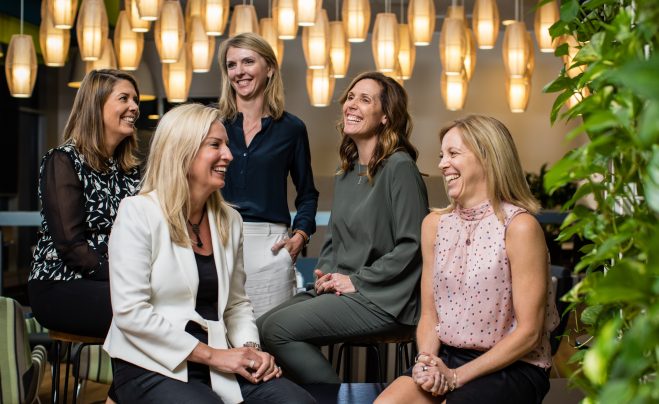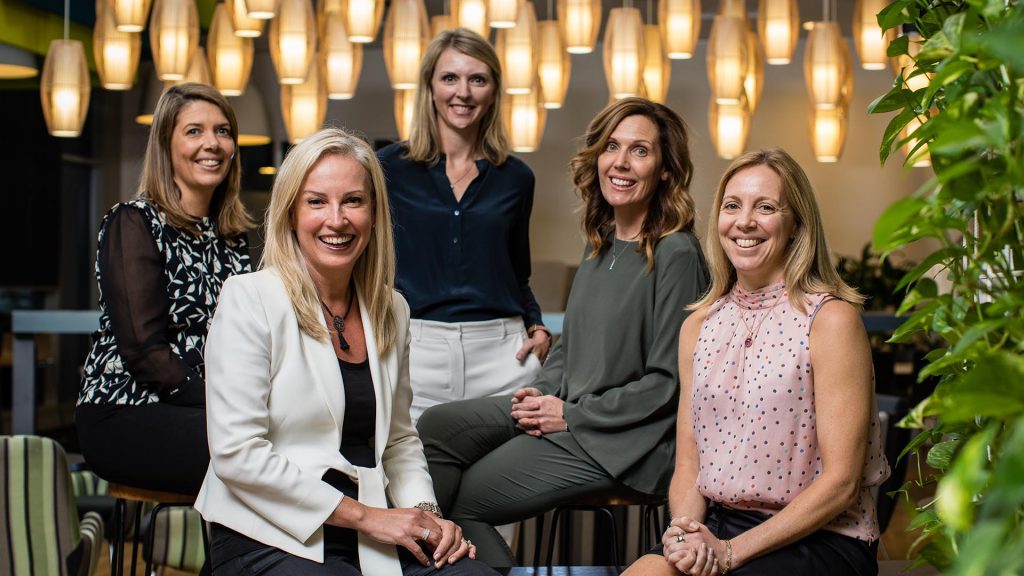
Press for Progress: Microsoft’s inspiring women celebrate International Women’s Day
It is 100 years since women in NSW were granted the right to stand for Parliament; it’s 110 years since women in Victoria were granted the right to vote. We’ve come a long, long way already – but the journey continues.
International Women’s Day is as good a day as any to reflect on how far women have come in every sphere; politics, sport, the arts, society and business.
It’s also a good day to reflect how far women have come in Microsoft, to take stock of the inclusive culture of the organisation, and its track record on diversity. We took the opportunity to talk to some of our inspiring women about what we’ve got right and what we still need to do.
According to chief operating officer, Rachel Bondi; “This International Women’s Day is going to be one of the biggest and the best we have had. It has been celebrated for over 100 years but with the #metoo movement allowing women to talk about harassment and the agenda around pay equality – I think this will be a unique one with a stronger voice.”
The transformation of Microsoft’s culture through CEO, Satya Nadella’s leadership has brought diversity issues to the fore. According to Kimberley Francis, director of channel sales, consumer, it is now; “Front of mind as one of the pillars of our culture.”
Diversity and inclusion remain however, a journey rather than a destination.
I would tell my 16 year old self to follow your own passion and be the person you want to be. I wasn’t the smartest kid at school but I had passion, drive and commitment. I have young kids so I tell them to be fierce – if you’re a fierce teenager you are probably going to be an awesome woman.
– Rachel Bondi
Microsoft’s most recent report to the Workplace Gender Equality Agency notes that of the 1,278 employees in 2016-17, 350 are women – just over 27 per cent. The stats are a little more impressive among managers – 35 per cent of all Microsoft Australia managers are women.
It’s ahead of many in the tech field – but there’s a way to go.
Bondi believes gender and pay parity should be a goal for every enterprise, Microsoft included.
CMO and communications director, Pip Arthur, agrees; “Parity should be a goal. There is no reason why we should not shoot for 50:50. Without goals how do you get there? What gets measured gets done. I don’t think we should be comfortable with the status quo.”
HR director Ingrid Jenkins adds in the ‘why’. ”In the business context, quite simply it just makes good business sense that 50 per cent of our population – and 50 per cent of the customer market – have an equal voice in the business decisions made at all levels.”
And as Jenny Wilson, digital and services lead, notes; “When you have men and women at the table looking at some problem for a client then you absolutely get a better outcome.”
The solid business reasons for encouraging greater gender diversity were reinforced in January with the release of McKinsey & Co’s latest study of diversity in the workplace. A survey of 1,000 companies in 12 countries revealed that diversity is a source of competitive advantage and a key enabler of growth.
Companies in the top quartile for gender diversity were 21 per cent more likely to achieve above average profitability than companies in the bottom quartile.
In a nutshell – it just makes sense. The women of Microsoft don’t need convincing.
Inclusive culture
Bondi says that the inclusive culture being fostered by Nadella has already sparked a growth mindset in every employee that is resonating across the enterprise.
Wilson, who joined Microsoft eight months ago from Deloitte, notes that at that firm; “Inclusion was the key term because it accentuates the ability to increase diversity,” through programmes such as work flexibility that amplify both gender and other forms of diversity.
I’d tell my 16 year old self to be aware of who you are and be willing to raise your voice when things are not stacking up right. As women we can be humble to a fault – be more confident in yourself.
– Jenny Wilson
Inclusion, she maintains, is the key. “Diversity is only as good as your ability to create environments to thrive – that is inclusivity.”
Director of SME business, Sharon Schoenborn adds that; “At Microsoft everyone needs to demonstrate impact – that’s the ticket to the game. At Microsoft, if you are a high performer and ambitious then opportunities present themselves to drive your career forward – that is available to all.”
She, for example, was involved in the high performance personal development programme and has started a women’s mentoring group called No Boundaries that meets monthly to support women’s career planning and development.
It’s one of a series of mentoring programmes that have run over the last few years. According to Jenkins; “One of the learnings was capacity and impact of one-to-one mentoring. We are about to launch cohort groups which are led by senior leaders with 8 – 10 female team members per cohort. The intent of these cohorts is to learn, encourage and inspire each other – which will include mentoring opportunities not just from the senior leader but also from the peer group.”
It’s not just about encouraging women within Microsoft to reach their full potential, it’s about finding more women for STEM and STEAM roles in general.
According to a 2017 report conducted by Deloitte Access Economics on behalf of the Australian Computer Society women comprised only 28 per cent of all ICT workers in Australia in 2016.
That compares to 44 per cent female representation in all professional roles. Average earnings also continue to be lower for women in the ICT workforce than for men, with an average pay gap of around 20 per cent.
Wilson says that the dialogue about taking up a career in technology needs to start at home with recognition that digital transformation embraces design thinking and technology as well as human transformation.
It’s not just for geeks as Colleen Maguire, technical sales manager, reminds; “The people who sit in cubicles writing code is a very minor percentage.” Instead schools and parents need to understand the world of change that technology is delivering, the roles that are available, and encourage both sons and daughters to think more broadly about career opportunities in the future.
At present however, finding women candidates for specific roles remains a challenge as Jenkins acknowledges; “This is where we have the greatest challenges in having rich gender diverse candidate pools.
“There are considerably less females in STEM related professions so we have a disproportionate number of males fulfilling these roles.”
If I could, I would tell the 16 year old me to not be intimidated by those who ooze confidence. It doesn’t mean they are better or more deserving of opportunities. Back yourself to take opportunities, even when you’re not sure whether you will be successful. You’ll be amazed at what you can achieve.
– Ingrid Jenkins
Nevertheless she points to the significant number of senior female role models in Microsoft Australia which; “Helps set the benchmark and tone to continue to support females in manager roles.”
Maguire adds that one reason why there may be fewer women in the deep technical roles is that these are often less flexible, requiring staff to travel where they are needed when they are needed. That relative lack of flexibility can be a challenge for people raising families.
But she said that the MACH (Microsoft Academy for College Hires) programme and internship schemes were attracting higher proportion of women at an earlier stage of their career.
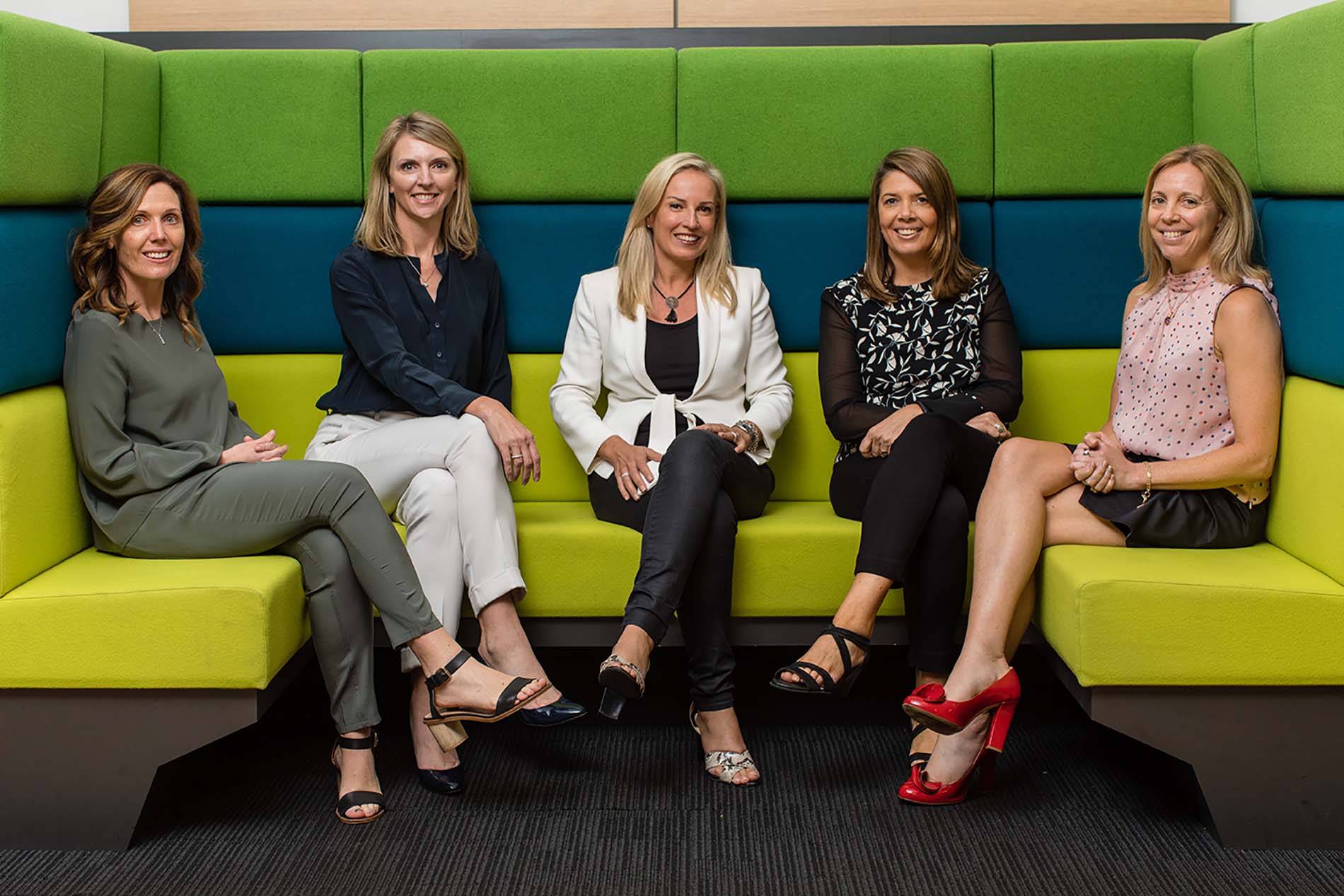
Purpose and people
The women interviewed ahead of International Women’s Day have been with Microsoft for periods ranging from just a few months to decades. Many were drawn by the opportunity to work with market leading transformative technology, but everyone referenced the values of the organisation, its purpose and people.
“The purpose of the organisation under Satya has become even more palpable and I feel even more attached to the mission of Microsoft,” says Arthur.
If I could time travel I would say stay as broad as you can for as long as you can. If you have the mindset that capability can be learned stay broad as it opens opportunities.
– Pip Arthur
The opportunity to work in an intelligent and collegiate organisation focussed on a key mission to empower people and business has resonated for all. But they also acknowledge that their careers are a work in progress, and that sometimes women hold back when they should spring forward.
Arthur is particularly candid about her flirtation with “imposter syndrome” and what it takes to overcome it.
“The notion of imposter syndrome is more prevalent in women. It’s something I can relate to and in these circumstances it’s important that you are surrounded by people that believe in you more than you believe in yourself.
“There have been times in my career where I have felt uncomfortable if I’m honest, pushed into a zone where I don’t have all the answers. It is so refreshing to find yourself in an environment that is built on a learn it all rather than a know it all culture.”
Wilson agrees that; “As women we can be humble to a fault – be more confident in yourself.”
That also extends to negotiating a rise. A study late last year by the World Economic Forum calculated at the current rate of progress it will take 100 years to close the gender pay gap. That’s just too slow says Bondi.
As Francis notes; “You do need to negotiate what you think you are worth, and women are generally less likely to ask.”
According to director of sales, One Commercial Partner, Claudia McIntosh; “Confidence and learning come from experience – put yourself out there and experience as much as you can. Don’t worry about making a mistake or failing – that’s where you learn the most.
“Seek out guidance and run very hard at opportunities… have a go and push yourself hard. You might fail at some things, but it’s not about the perfect outcome it’s all about learning.
“Someone once said to me the only person standing in your way is you.”
Broader horizons
That of course is not always the case as the #metoo movement has highlighted. While it has raised the challenging topic of sexual assault and harassment in the workplace it has created an important platform for all people according to Arthur.
She says that the culture of Microsoft should empower anybody to speak up about problems they are facing. “But that is not pervasive in all companies. #metoo increased awareness and what is important is that people can speak up and get their voice heard.
“I have worked in amazing organisations with incredible HR – but all it takes is one bad egg. I hope it has raised awareness about people – not just women – making their voice heard.”
And it is important to raise our eyes beyond just gender diversity, beyond the corporate boundaries and to the rest of the world.
As McIntosh notes: “We haven’t achieved gender parity in the rest of the world and not all women have rights, education, a voice. International Women’s Day is a great time to reflect on women who have gone before us and remember that there is a long way for our sisters to travel in the rest of the world.”
I wish I had the confidence I had now at a young age – I would have pushed myself a lot harder. I’d tell my 16 year old self to be less worried about what other people are thinking about you. Oh, and go and buy as many houses as you can in Sydney.
– Claudia McIntosh
She says that the transformation of Microsoft means that; “Leaders are asking not first about profits and scorecards – but what responsibility we have to the rest of the world to bring about change where it is needed, focussing our organisational strength to do the right thing.
“Satya and Steven (Worrall, MD) are empowering everyone to achieve more and look at issues like homelessness, indigenous opportunity, retraining for roles displaced by technology – I’m very proud to be part of that.”
The final word goes to Rachel Bondi who notes; “The theme of International Women’s Day this year is Press for Progress. Let’s get ready to have the conversations. There is a change in the conversation with regard to equity for women – this is the year that every person in business needs to get behind this day.”
And every day.
To my 16 year old self: you don’t have to be all business, you can be feminine and kind and vulnerable – but work hard always and never waiver in your determination. Always assume gender equality unless there is a reason not to. Say yes to your next opportunity, create the life you want but stop to smell the roses.
– Kimberley Francis





